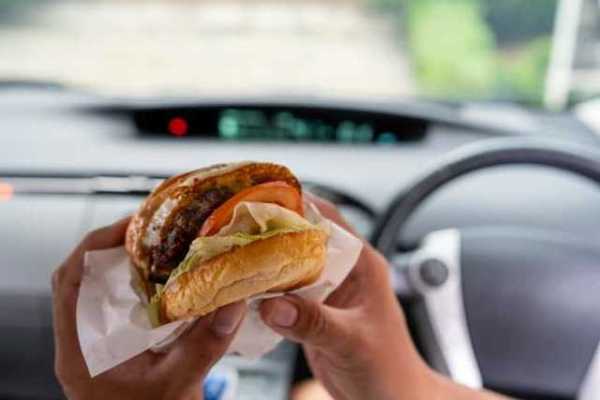

Eating on the go is a common practice for many, whether it’s on the way to a meeting or after a workout. However, health experts are now cautioning against this habit, citing unsanitary conditions and potential health risks, including foodborne illnesses.
Dr. Shivram Singh, a health expert at WINIT Clinic, has highlighted the dangers of eating or storing food in vehicles. “Eating or storing food in a car can often result in spills and crumbs, which may harbor bacteria, mold, or attract pests if not cleaned thoroughly,” he warned. “This can create an unsanitary environment, not only for eating but also for maintaining good health and hygiene.”
Dr. Singh emphasized the importance of consuming meals in a controlled environment to better appreciate food and ensure proper storage conditions for leftovers or snacks.
"Drivers should always make it a point to eat their meals in a controlled environment where they can better appreciate their food and maintain proper storage conditions for leftovers or snacks," he added.
Risk of Foodborne IllnessesDr. Singh explained that the temperature fluctuations inside vehicles exacerbate the problem. “Storing and eating food in your vehicle can lead to an increase of bacteria growth, which can result in many health implications. Interiors of cars can be awfully hot during the summer and really cold during the winter, and both these excessive conditions bring negative health implications,” he said.
Certain bacteria, such as Salmonella and Listeria, thrive in temperatures ranging from 40°F to 140°F — conditions commonly found in enclosed cars. This significantly increases the risk of foodborne illnesses.
"There are some bacteria, such as Salmonella and Listeria, whose ideal temperature of growth falls in the 40°F-140°F range typically found in a normal enclosed automobile. This increases the risk of foodborne illnesses," Dr. Singh added.
High Bacterial Loads in CarsStudies have revealed that various areas within cars, such as the boot, driver’s seat, gear stick, dashboard, and steering wheel, can harbor high bacterial counts. Dr. Gareth Nye, a lecturer in medical science at the University of Chester, noted that a study of cars up for sale identified nearly 1,500 different bacteria in the car boot alone.
"The driver's seat, gear stick, dashboard and steering wheel all carry significant bacterial loads. However, this study was done in cars up for sale, and I imagine bacterial numbers would be much higher in regularly used cars," he said.
The most common bacteria found in cars include E. coli, which is typically harmless but can cause food poisoning in some cases. Other bacteria, such as strains of Staphylococcus epidermidis and Staphylococcus aureus, are also frequently detected on car surfaces.
Recommendations for DriversExperts recommend regular cleaning of car interiors, especially for those who frequently eat in their vehicles. Keith Hawes, Director at Nationwide Vehicle Contracts, stressed the importance of maintaining a hygienic environment.
"Maintaining regular car cleaning is vital, especially after eating. You should always adequately dispose of any rubbish after eating in your car, using a portable vacuum cleaner, antimicrobial wipes, and odour-neutralising sprays can help drivers maintain a clean and safe driving environment," he said.
While it may be convenient to eat on the go, health experts urge individuals to reconsider this habit. Taking the time to eat in a controlled and hygienic environment can not only enhance the dining experience but also significantly reduce the risk of foodborne illnesses and other health complications.